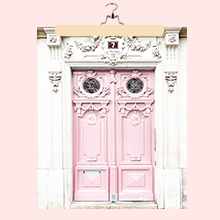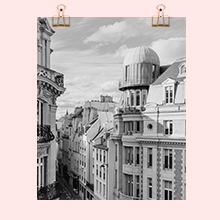Blog
立即购买 $11.99 时尚前卫的 法国巴黎 美国亚马逊Amazon
Write an sale copywriter in Chinese using the AIDA (Attention, Interest, Desire, Action) formula about 法国巴黎
,don’t include word “title,Attention,Interest,Desire,Action”,

Price: [price_with_discount]
(as of [price_update_date] – Details)
只有海明威的《流动的盛宴》才能与《法国巴黎》相媲美,它是战前法国及其令人难忘的文学成就的“新鲜而睿智”(《纽约客》)的经典之作。
格特鲁德·斯坦(Gertrude Stein,1874-1946 年)以其创新的文学才华而闻名,她在二十世纪之交定居在繁华的巴黎,再也没有回到她的祖国美国。在巴黎期间,她不仅身边围绕着一群杰出的年轻外籍艺术家,并孜孜不倦地支持他们的职业生涯,而且还巩固了自己作为“美国文学界最具争议的人物之一”的地位(《纽约时报》)。
在《法国巴黎》(1940 年)中,斯坦因将她童年对巴黎的记忆与她对艺术、战争、爱情和烹饪等一切事物的观察结合起来,并由亚当·戈普尼克 (Adam Gopnik) 进行了新的介绍。其结果是令人难忘地一睹过去的时代,一个处于革命性变革边缘的时代。
ASIN : B00AR3550K
出版商 : Liveright;第一版(2013 年 6 月 24 日)
出版日期 : June 24, 2013
语言 : 英语
文件大小 : 674 KB
文本转语音 : 已启用
屏幕阅读器 : 支持
增强排版 : 已启用
X-Ray : 未启用
Word Wise : 已启用
打印长度 : 129 页
Write an innovative article with thousand words in Chinese about review 法国巴黎
,include title but don’t include word “title”
Write an attractive sale article in Chinese about why you should buy 法国巴黎
,don’t include word “title”
Write in chinese to list ressource with links about Paris guidebook
Customers say
Customers find the book refreshing, easy to read, and quick. They appreciate the interesting insights and anecdotes about early 20th-century France. However, some readers feel the writing quality is poor and tedious.
Paris papa from the text of customer reviews
Reviewer: Warren W Dunn
Rating: 5.0 out of 5 stars
Title: it was that good. I don’t know if she was writing in …
Review: This book is typical Gertrude Stein: full of witticisms and hard to understand statements! I read it thru and wondered what I read, it was that good. I don’t know if she was writing in a ‘tough in cheek’ sort of way but that was not her style. All in all it was a delight to read and re-read as it is classic ‘Gertrude Stein’
Reviewer: Teke O
Rating: 5.0 out of 5 stars
Title: Great Read
Review: This is one of Gertrude Steinâs most accessible works, it is full of glee, but also scathing insight in her gentle way.
Reviewer: Anne Phillips
Rating: 4.0 out of 5 stars
Title: French cooking is traditional
Review: Gertrude Stein’s decades long fascination with all things French – country, Paris, people. A quick read and several revelations. The particular Stein language and punctuation are sometimes rather irritating. “Do Americans perhaps think that the world is flat because of their continent just as Europe knows it is round because Columbus sailed from Europe to prove it and even if he did hit up against a flat continent he was sure of it.” Yes, indeed,
Reviewer: the fine reverend besotted
Rating: 3.0 out of 5 stars
Title: Stylistically, Stein is basically an essayist using mannered rhetoric to imply she is an “artist”
Review: Some interesting anecdotes about early 20th C. France. However, Stein is tedious to read as she is basically an essayist using mannered rhetoric to imply she is an “artist”I read this book because I have been re-reading Hemingway and, of course, he is famously supposed to have been tutored by Stein – though he eventually began mocking her style (Stein’s ‘a rose is a rose is a rose’ became Hemingway’s ‘a rose is a rose is an onion’, effectively implying that excessive redundancy is stylistic masturbation as it is highly mannered and without true ‘intercourse’ with the reader. Is Stein’s sentence clever? Perhaps. But Hemingway decidedly did not find it profound.)In fact, it is interesting to compare Stein’s book to Hemingway’s ‘A Moveable Feast’ as each is substantially autobiographical and about their time in Paris/France. The first thing I noted is that Stein’s book is about stating her thoughts/opinions/ideas about Paris and France as much as it is about anything, while Hemingway’s is about depicting what occurred while he was in Paris and France, at least as he remembers it.The second thing I noted was that Stein is basically an essayist. It is said that a fiction writer must “show” rather than “tell”. Hemingway does this. Stein does not. She tells and tells and tells. Even when she describes, she often uses just an adjective to pin a descriptor onto a person, place, or thing. Because of this, she spends much of the first part of her book telling the reader that France is “civilized”, “logical”, “fashionable”. Each of these words is vaguely developed based upon Stein’s pet theory as to why so may world class artists and writers (Picasso, Hemingway, Fitzgerald, Pound, etc.) lived in Paris in the early 20th century. Her assessment, found in these three words, is never directly stated by her, just implied. Based upon those implications, she seemed to believe that French people are logical and, so, realize each person is different and, so, they are civilize to everyone and, so, accepting of artist, even great artist, without being impressed by such. However, because they are so “adult”, they lack basic emotional desire and, so, rather than chase after passion, they chase after “fashion” which is a developed, artificial form of ‘passion’.Accordingly, Stein presumably believed that a French man will likely have a mistress who he does not love nor toward whom he feels any real passion; however, it is fashionable to have a mistress as it implies a passion which a Frenchman cannot actually feel because he is too logical about the world.Which leads to the final things I noted, Stein was a person who liked to observe the world and ponder about it. Accordingly, her book is full of small observations and ancedotes about life in France leading up to the start of WWII. Along with these observations, she likes to state and often spout her ponderings. However, she apparently desired to be an artist but clearly was too logical, too much the intellectual to be a good one so she developed a mannered style to imply an “artistry” hoping to mask the fact that she basically just wrote essays.So, she goes on tediously and pseudo-cryptically about France being at ‘war’ but the little girl she is about to tell anecdotes about is not living in a time of ‘war’ but living in ‘war time’ because the girl’s country was at war but the girl was not participating in the war and, so, it is more accurate to say she is ‘living in war time’ rather than to say she is ‘living through a war’ since only the French soldiers are actually living “through a war”. As to the anecdotes about the girl, they are wonderfully observed as few other writers would have taken the time, as Stein so often does, to find this child so important as to see the importance to her of the small things in her life – yet these anecdotes, as dear as they are, ultimately come off as artificial. Sadly, the little girl never comes alive before the reader’s eyes since Stein once again writes in a mannered way and, so, the little girl, who presumably was a real person, comes across as a cardboard cut-out.Too often, reading Stein is like reading a first reader (“See Dick. See Dick run.”) mixed with unnecessary half-meanings (Stein keeps stating that France was “ready for the 20th Century” while England “did not want to believe the 20th Century had arrived and kept living in the 19th Century until WWI forced the country into the 20th Century. Presumably, all this really means is that France began to give up it colonies as unsupportable earlier than England which maintained its “empire” through the end of WWII. Of course, stating what she actually meant is too practical and so Stein had to be pseudo-cryptical, pseudo-profound by talking around what she meant to actually say.)In the end, the reader of Hemingway’s book does see Paris and France from the limited perspective/selfish view of Hemingway. The reader of Stein’s book does not see Paris or France but does read many small and fascinating anecdotes which allows one to get a truer sense of France, in general, along with several pet theories and ideas of Stein’s. Hemingway shows himself, including his lesser even uglier immediate thoughts and emotions. Stein is above all of that. She is not one to show anything of herself, other than those thoughts which she believes show how clever and “artistic” she was.Stein’s style can be interesting, yet it soon becomes mannered and, as she just tells, boring to read.In example from a separate work of ‘fiction’ by Stein, a story called ‘The Good Anna’:”She was a few years older than our good Anna, who was soon entirely subdued by her magnetic, sympathetic charm.”How is this better than:”She was a few years older than Anna, who was entirely subdued by her charm”Why the need to continually call the lead character “good Anna”, particularly as this rhetoric is not used for irony since Stein clearly found Anna to be good. So, is she so uncertain her readers will see Anna as ‘good’ so she feels the need to continually tell them or is it, more likely, just a mannerism to imply ‘artistry’ by Stein?And what is one to do with “magnetic, sympathetic charm”, particular when nothing is done to actually show the other character, ‘Mrs. Lehntman’, is charming, let alone ‘magnetic’ or ‘sympathetic’. Again, it is just mannerism to apparently mask that Stein really could only write essays but wanted to be a fiction writer and, so, puts in adjectives readily and repeatedly to imply she is an ‘experimental’ if not an ‘artistic’ writer.If you are a writer, there is value in reading this book to understand Stein’s style. In small doses, it can be refreshing to read and, so, can be emulated in small doses. Also, if you want to get a sense of French life during the early part of WWII, you will find information in this book and small anecdotes which show the attitude of the common man.However, if you are reading it to be entertained, the book is a longer read than its pages imply because Stein is frankly a bit of a tedious author. Unnecessary mannerism and cryptic statements to imply profundity are just boring to read after a few pages.
Reviewer: Amazon Customer
Rating: 5.0 out of 5 stars
Title: Five Stars
Review: Delightful, this is read as if Stein was talking to you, and is filled with poetry.
Reviewer: poppy
Rating: 5.0 out of 5 stars
Title: a gem, a rosy gem
Review: a very personal view of gertrude and alice’s life in france. memories of life during WW1 and while they’re in the midst of WW2. it’s a love story of france and it’s people.
Reviewer: Chuck. Dunbar
Rating: 2.0 out of 5 stars
Title: I had hoped for a more illuminating read considering the …
Review: I had hoped for a more illuminating read considering the authors years in Paris and her contacts with artists, writers and others during the early 20th century. However, Stein cannot write. I abandoned the book early.
Reviewer: CM
Rating: 5.0 out of 5 stars
Title: Sixty years later, Gertrude’s words still ring true. …
Review: Sixty years later, Gertrude’s words still ring true. I only cross the dangerous streets in Paris in pace with a French person. They haven’t lost their stride.
Reviewer: CORNU
Rating: 5.0 out of 5 stars
Title:
Review: très bon livre, anglais facile à comprendre.Livraison dans les temps
Reviewer: Andre Miller
Rating: 5.0 out of 5 stars
Title:
Review: The Beauty off this book lies in its use of language. The French language as beautiful as it is, with its evocative, soulful nature, it is Ms. Stein emulsification of American and French culture that allows for the telling of this particulary French saga in an American way. Fresh and inspiring! ” It was a Frenchman who said to me, he said war is not civilising and the men who were eighteen to twenty-three in war missed their time for becoming civilised. War can not civilise, it takes private life to civilise, and of course publicity has the same effect as war it prevents the process of civilization.” This is the wonderful expressive English Version of insight into the mindset of the French. Yes it is the use of Language that makes this book so interesting.
Reviewer: pierre desrochers
Rating: 5.0 out of 5 stars
Title:
Review: impeccable
Reviewer: Shelley Day
Rating: 5.0 out of 5 stars
Title:
Review: Review of Gertrude Steinâs Paris FranceâI was only four years old when I was first in Paris and talked french there and was photographed there and went to school there, and ate soup for early breakfast and had leg of mutton and spinach for lunch, I always liked spinach, and a black cat jumped on my mother’s back.â So begins Gertrude Steinâs unique little elegy to Paris. Fasten your seatbelts, youâre about to go on a ride, and itâs not going to be a smooth one. You may not think of it at first â âParis, France, is exciting and peaceful,â she says on page 1 – but read on and it gradually dawns on you that Paris, France is anything but peaceful and exciting.This book is a little gem that emerges from the shadows; written in 1939, the start of WW11 is its backdrop, its inescapable backdrop, and I say âelegyâ because it does have something of the tone of an elegy, and Stein is writing about Paris (and more generally about France) from a remote retreat in the country. From that place of relative safety (remember, Stein was of Jewish descent) Stein gives us, in her own inimitable style, her observations, musings, snippets of memory, on Paris, France, its habits, its character, its peoples, its pastimes, its passions, fashions and food. The prose â uncompromising, often raw, often tender, sometimes indignant, bossy â is unmistakably hers. Her writingâs very much at home in itself, as Paris is very at home in itself, as Stein is very much at home in herself, and as France is too â but she doesnât let you forget that the backdrop to all this is change, profound political and social change. Paris may be the city thatâs so known to itself and so true to itself and so comfortable in its own skin but how long such a thing can last is the subtext that meanders throughout the book.This is not a travelogue and tells you next to nothing about any of the places an interested visitor to the city might want to visit. Neither is it an introduction to the personalities, works or foibles of any of the literary and artistic Greats who frequented the Salon of Gertrude Stein – Pablo Picasso and Henri Matisse, Edith Sitwell and Harold Acton, F. Scott Fitzgerald and Thornton Wilder, Hemingway among them. Unlike Hemingway in his A Moveable Feast we donât meet anyone whose name we already know â thereâs a teeny mention of Picasso, and an even teenier one of F Scott Fitzgerald, but thatâs about it. Mostly we hear about the ordinary folk living round about her in the country and how theyâre getting on the best they can with their lives, despite everything, and we hear little snippets from their stories which speak to us of resilience and, well, all the small everyday things that are important in the longer term scheme of things.In this book, Paris is a city Stein looks in on as an outsider. She lived there for many decades, yet she always remained, in some ways, as an outsider – âAmerica is my country and Paris is my home town,â she says â and this outsider status enabled her to write of the place and the time, and her writing now affords us a unique vision of a city and a country we now know still reels from the longer terms legacy of those war years.But Stein is not always an outsider. In this neat little book, we also see her as an insider looking out â she casts her eye briefly over America, England, Germany, and she doesnât much like what she sees; âParis was where the 20th century was,â she says, âParis was the natural background of the art and literature of the 20th century.â England, by contrast, âwas consciously refusing the 20th century.âThis is a deeply personal book, itâs a great intro to Steinâs work for those who donât know her yet and yet another little gem for people who already love her. Despite the shadowy backdrop, the bookâs not at all depressing. On the contrary, itâs suffused with a quirky humour, her immediate writing style, her penetrative insights offer a wide range of readers an awful lot to enjoy. And on top of all that, it’s a very profound book.
Reviewer: recluse
Rating: 3.0 out of 5 stars
Title:
Review: ã¢ã¡ãªã«ãæ¨ã¦ãããã§ã¯ãªããã©ãï¼ï¼ä¸ç´ååã«é·å¹´ã«ããã£ã¦ããªãªãã³ã«ãã©ã³ã¹ã«ä½ã¿ãåæã®ãã«ã½ã®çºè¦è
ã¨ãã¦ãæåãªgertrude steinã®ãã©ã³ã¹ãªãã³ã«ããªã«ã¤ãã¦ã®å°ååã§ãããããï¼ï¼ï¼ãã¼ã¸ã®æ¬ã§ããã¤é£ããè±èªãã»ã¨ãã©ä½¿ã£ã¦ããªãã®ã§ããã彼女ã®æä½ã¯æ
£ããã¾ã§ã¯ãé常ã«èªã¿ã«ããè±èªã§ããç´æ¥è©±æ³ã¨éæ¥è©±æ³ãåãç®ãªãç¶ããæ¥ç¶è©ãå¥èªç¹ãçç¥ããã¦ããç¬ç¹ã®å½¼å¥³ã®æä½ã§ããã¾ãçªç¶ãã©ã³ã¹èªã®idiomãåå¾ã¨ã®æ¥ç¶ãªãã«æ¿å
¥ãããã®ãæ©ã¿ã®ç¨®ã§ãããã©ã³ã¹ã®civilisationã®æ¬è³ªï¼family, logic and tradition)ã«ãã¾ãã¾ãªå½¼å¥³ã®çµé¨ãããã©ããã¨ãã¦ããããã§ãããèæ¯ã¨ãªã£ã¦ããã®ã¯ï¼ï¼ï¼ï¼å¹´ï¼æã®ç¬¬äºæ¬¡å¤§æ¦ã®åçºã¨ããã¸ã®ãã©ã³ã¹äººã®å¯¾å¿ã§ããç¹ã«phoney warã¨ããããææã対象ã¨ãã¦ãããããç¬ç¹ã®ããããã¨ããå±æ©ã§ããªããã°å¹³æã§ããªãï¼ããããã¼ã®ãã¬ã¹ãã»ãªããã¹ã¯ã§ã®çºè¨ï¼ç¶æ³ãèæ¯ã¨ããªãããï¼ï¼ä¸ç´ããï¼ï¼ä¸ç´ã¸ã®ãã©ã³ã¹ã®å¤åã¨å¤åãå¾ãªããã®ãæµ®ãã³ä¸ãããããã¨ãã¦ãã¾ããåãææã®ä½åãªãããstefan zweigã®âæ¨æ¥ã®ä¸çâã»ã©ã®çµ¶ææã¨æ¶ãå»ãä¸çã¸ã®ãã¹ã¿ã«ã¸ã¼ã伺ããªãã®ã¯ãã¾ã phoney warãç¶ãã¦ããããã§ãããããèå³ã®ããæ¹ã¯ææ¦ãã¦ã¿ã¦ãã ãã
搜索 Paris 酒店.节省高达 75% 的酒店费用。
直接预订酒店以获得最优惠的价格
——————————————————————————————————————-
用Pearson的Mondly改变您的巴黎家庭旅行 | 创新语言学习与旅行的结合
——————————————————————————————————————-





















